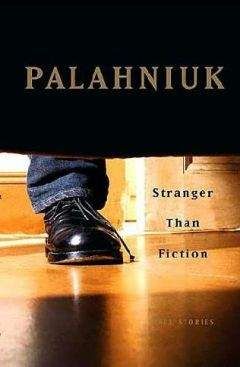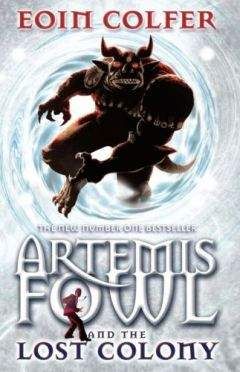Deerskin - Robin McKinley
Ash left her as she dressed herself, and stood by the door, looking out. Lissar looked at her as she rested from the labor of clothing herself, and the attitude of Ash's body suggested something to her. She raised her eyes to the patch of sky visible over Ash's head, over the garden wall: it was definitely paler than it had been, and this frightened her. She did not want to meet anyone else-she had trouble with this concept, with the idea of the existence of other people. She knew, dimly, that other people existed, must exist, but she could not quite bring a vision of their being into her clouded mind-but she knew she did not want to meet anyone else. Her eyes drew themselves to that open door in the wall and she studied it; she closed one eye again so the door would stand still. What did the door make her think of?
Ash stepped down, slowly, stiffly, into the garden, walked toward the other door, and then turned her head, slowly, moving her shoulder a little so that she did not have to bend her neck so far, and looked back at her person.
Leave, came the thought to Lissar's bruised mind. We must leave; before dawn, before there are many people about; before ... her mind would permit no more, but it was enough.
Lissar took a step forward, and another; and bumped into the table where there lay three half-eaten loaves of bread, some shreds of meat and crumbs of cheese; two apples and a pear. Food. She tried to focus her eyes on the food. She would have use for food some time, she thought; and put out her good hand, and picked up the first thing it touched, and put it in a pocket. Then she took up a second thing, and put it in another pocket; and a third; and a fourth. The petticoat had enormous pockets; she had a dim recollection of owning so unfashionable a garment because she used to go for long walks in the woods with... with... and they used to collect...
she could not remember. Plants? Why would one pull the leaves off plants and put them in one's petticoat pocket? And what matter was it if a petticoat was fashionable or not? Why did it matter if her petticoat was fashionable?
But her mind began to shiver and pull away again, and by then her pockets were full. She made her slow, uncertain way to the open tower door.
The flannel's warmth, and the unexamined comfort of being clothed, and a plan, even so simple a plan as to walk through one door and then another door and then on somewhere else, cleared her head a little. She paused on the first threshold to take a deep breath; it hurt; but the strength it provided was greater than the pain, and she took a second breath. She opened both eyes, blinked, looked at the garden door, and willed her eyes to focus together.
For a tiny flicker of a moment, they did; and heartened by this, she took a step forward, outside; and the full strength of the wind struck her, and she stumbled; pain stabbed her hip. She took a step backwards, facing into the room she had just left, her hand on the doorframe to steady herself.
She saw several articles of clothing lying over the back of one of the chairs beside the table that bore the food. She fumbled through them, and drew out a long, heavy length of dark green stuff with a ... collar. She recognized the purpose of the narrow little roll of material in the wide sweep of the thing: a cloak. Awkwardly she hung it over her shoulders.
Then she stepped outdoors again, and followed in her dog's wake.
ELEVEN
SINCE SHE KNEW NEITHER FROM WHAT THEY FLED NOR WHERE
they were going, it was an odd and frustrating journey, and frequently a terrifying one. Two things lodged in her mind, and she allowed herself to be guided by them as she might have been guided by two fixed stars by which she could determine her bearings, and choose a line to take.
The first fixed point was: away. Away from where she had been when she was first recalled to herself by Ash's soft, frantic tongue. This first point she had mostly to leave to Ash, however; for she wandered in and out of full consciousness.
Occasionally she awoke lying on the ground, without any recollection of halting to rest; sometimes she merely awoke to the knowledge that her limping feet had gone on taking one slow step after another while her mind had been elsewhere.
Once she awoke like this standing in a stream from which Ash was drinking eagerly; and she was glad to bend cautiously down and do likewise. Sometimes she awoke to the realization that her eyes had set themselves upon a tree she was making her way toward; for she had found early on that this was the steadiest way for her to proceed, to sight at some distance some landmark and work her way toward it, and then, upon gaining it, choose another. Her balance and her vision were still too erratic to risk much looking around in the ordinary way of walking; and watching the jogging, swinging form of Ash was not to be considered.
Or at least she guessed that her landmark-by-landmark form of travel, like a messenger riding from one road-stone to the next, was not the usual method of the healthy. She was not sure of this as she was not sure of almost everything. Was she, then, not healthy? Her hip hurt her all the time. She knew she did not like this, and guessed that it should not be that way. But should both her eyes be able to focus on a single thing? Then why had she two eyes?
The one external fixed point in her universe was Ash, for all that she could only look at her directly when one or the other of them, and preferably both, was standing still. The one word she had said aloud since she had first opened her eyes in answer to Ash's calling her back, was Ash's name. She could not remember her own. She stopped trying, after a while, because it frightened her too much; both the trying to remember and the not remembering.
Most of what they saw was trees, and, fortunately, frequent streams. Sometimes there was a trail, perhaps a deer track; sometimes there wasn't; but luckily the woods were old and thick, and there was not too much low undergrowth to bar human passage, although Lissar had sometimes to duck under low limbs. This was lucky in another way, that the tree cover, even this late in the season, was heavy enough that rain did not often soak through. She was often thirsty but rarely hungry. She ate a bit of bread occasionally, when she thought of it, and fed a little to Ash, who ate it with a manner similar to her own: a sort of bemused dutifulness, nothing more.
Ash occasionally snapped up and swallowed leaves, grass, insects, and small scuttling creatures Lissar sometimes recognized as mice and sometimes recognized as not-mice and sometimes did not see at all. As Lissar watched, another memory tried to surface: edible plants.
She had learnt-not long ago, she thought, though she could not remember why she thought so-quite a bit about edible plants. Her good hand reached out, traced the shape of a leaf . . . something . . . she remembered. She pulled the leaf off and bit into it. Sharp; it made her eyes water. But she held it in her mouth a moment, and it began to taste good to her; it began to taste as if it would do her good.
She pulled a few more leaves off the tall bush and gave them to her other hand to hold. She had finally worked that arm through its sleeve; that had been one long evening's work. They did mostly halt-she remembered this from day to day, and it comforted her, this bit of continuity, this memory she could grasp any time she wished-when it grew too dark for her to see Ash easily, even glimmering as she did in shadow.
She stood, holding leaves in one hand, thinking about what to do next; and then she brushed the edge of her cloak back so that her hand could find her pocket, and she deposited the leaves there, with the last dry-but-sticky, unpleasantly homogenous bits of their food-store. The cloak got twisted a bit too far around her throat during this process, and she had to spend a little more time to tug it awkwardly back into place. Then she hastened, in a kind of limping scuttle, after Ash; though Ash had already noticed her absence, and had stopped to wait for her.
She had learnt to fasten the hook through its catch upon the cloak a little more securely; she unfastened it when Ash and she lay down to sleep together, so she could more easily spread it around them both. But her left arm was still difficult to move, and its range of motion was very small. Her hip hurt the worst, though she had grown somewhat accustomed even to this; her headache came and went, as did her dizzy spells. And her lapses of consciousness.
At some point she washed Ash's back, and the bump at the base of her skull, with a corner of her petticoat, as they stood in one of the frequent streams. Her own wounds had clotted and in some places her clothing was stuck to her skin; she did not think about it. When she needed to relieve herself she did it where she was, standing or squatting, wherever she happened to be, and when she was finished she moved on.
She noticed that the weather was growing colder. The ground, and worse, running water, when there were no stones for a bridge (and even when there were, rarely could she keep her balance for an entire crossing dry-footed), hurt her bare feet increasingly. She often left bloody footprints, and her limping grew so severe that sometimes her damaged hip could not bear it, and she had to stop, even when the sun was high.
She noticed that the skin was sunken between Ash's ribs, and that her eyes seemed to take up her entire face. She did not know what her own ribs looked like, and she never touched herself if she could help it. She knew she stank, but she did not care; pain and weakness took up too much of her wavering awareness, pain and weakness and fear and the need to keep following Ash as she trotted, more and more slowly, ahead of her.
She knew that they were not going very far, each day; but they kept going, kept putting one aching foot in front of the other.
They had eaten everything in Lissar's pockets-some time; she remembered eating, a little, but she did not remember the end of eating. She ate late-clinging berries off bushes she thought she recognized. Often she forgot that the pain in her belly was a specific pain with a specific origin; pain was so general a condition of her life. She was accustomed to dizziness too, and did not think that part of it was due to lack of food.
At night she and Ash huddled on the ground, and the cloak covered them both; and Lissar slept, or at least the dark hours passed without her awareness; and she did not dream.
The nights grew longer and the days colder, and Lissar shivered even with the cloak clutched closely around her, walking as swiftly as she could. She thought that they had been climbing for some time, though she could not have said how long-days? weeks? She had no idea how long they had been travelling, how long it had been since she had dragged on a flannel petticoat and shirt and walked through a door and a gate and kept on going. But she was sure that she had noticed the ground gently rising underfoot for some time past; to be setting the next foot a little higher than the last felt familiar, as if it had been going on for some while. They never saw another human being.
But the ground grew steeper, and Lissar was near the end of her last strength.
One night it snowed. At first Lissar had no idea what the soft white shreds drifting down might be; at first she thought that her vision was playing some new trick on her. The white fragments were pretty, mysterious, rather magical. Lissar lifted her face to them; but they were also cold. Perhaps they were happening around her, and not just in the lingering fog before her eyes. She felt their coldness on her face first, but they grew thicker, and in a short while they made walking agony. Usually she and Ash halted as soon as it was too dark for Lissar to see clearly; it hurt too much to blunder into a tree or a thorn bush. Tonight they kept on. Ash seemed to be going toward something with a purposefulness Lissar thought was unusual; but Lissar no longer gave much credibility to anything she thought.
But Lissar had another thought, and this made her willing to keep on, despite the chance of a brutal encounter with a tree: she thought, somehow, that if they stopped, while this white stuff (snow, came the term for it, very distantly) was falling, they would not start again. This thought was not without its attraction, but she had chosen not to give up again till she had no other choice. In the meanwhile she trudged on, following Ash.
And so together they blundered into a small clearing among the trees through which they had been weaving their pathless way; and there was a dark bulk at one end of the clearing, much lower and wider than any tree. Ash made straight for it, Lissar coming haltingly behind.
It was a tiny cabin, not much more than a shack, with the roof built out on two sides, one to protect the wood-pile, which covered the entire wall, up to the rough plank awning; one overhung the door and the narrow strip of outside floor, a little wider than a step, that ran the length of that wall. Lissar had one brief, terrible moment upon first recognition of human habitation; but she saw almost at once that this tiny hut stood empty, probably had for a long time, and, she let herself think, therefore likely to remain so. When she drew near she could see cobwebs over the wood-pile and hanging, snow-spangled, from the roof over the door.
If Ash's and her luck was so bad after all that some other travellers were to come here during this same storm, then so be it. For the moment the hut would save their lives, and that was enough. She stepped, dragging one foot behind her, up to the low threshold, lifted the latch, and went in.
The smell of the room was musty, shut-up-for-long, many-families-of-mice smelling. Lissar stood for a moment, waiting for her eyes to adjust. By the dim light of the open door, and the memory of the shape and placement of a rough stone chimney on the rear wall, visible over the roof of the wood-pile, she saw the fireplace opposite the door. Perhaps the cold and the imminence of death helped her, for there were no long blank pauses in her thoughts after deciding that seeking this shelter was worth the risk.




